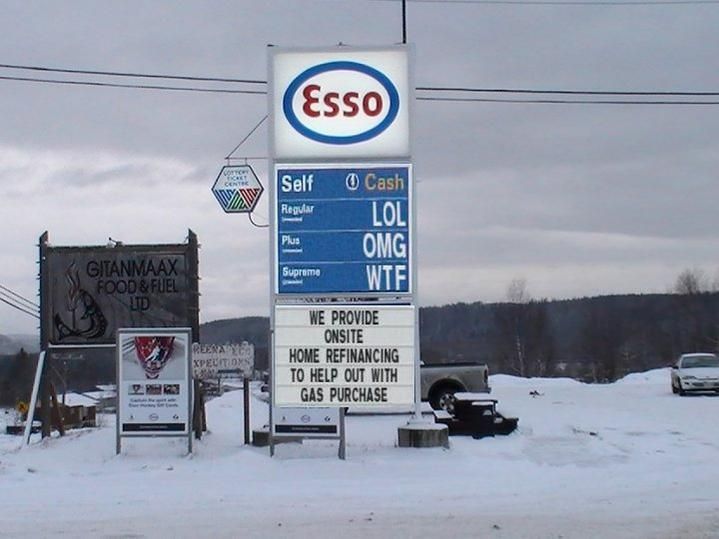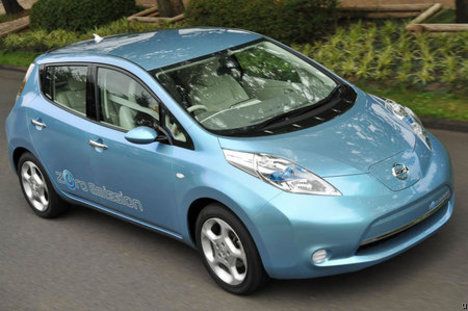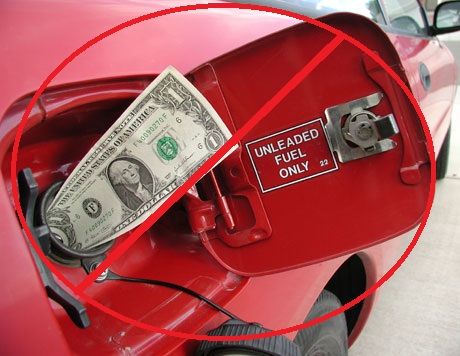Throughout the past several weeks the economy of the United States and other large importers of oil have struggled to maintain positive amidst the turmoil in the middle-east. Civil unrest and pressure have led to a decrease in oil production and increase in the price for a single barrel. We have seen prices reach the $100 mark and beyond, and there are no signs of a ceiling.
These two year highs for the price of crude oil have led to OPEC releasing more supplies from our reserves, but it has not quelled the price hike. California is currently suffering from the highest prices nationwide and they have reached within a cent of $4.00 per gallon for regular unleaded. This has put added strain on a struggling economic environment for many people and, if this continues, it will drag our economy further down. With cars like the Toyota Prius->ke231 and other hybrids hitting the market every week, it is good to see that the manufacturers are realizing that gasoline will not be the answer to our future problems.
The major auto shows and car introductions across the world, including the biggest in the United States, Detroit, are where auto manufacturers try to sell the public hot-air. Most of the amazing and futuristic concept cars are so far on the other side of being a production possibility they might as well be alien. The recent economic climate across the world has shifted the car companies in a new direction and the consumer continues to pull them even further. People are eager for cars that are economical and exciting – most people enjoy driving, just not having to pay $4.00 per gallon to do it.
With our economy in the United States struggling to get on the move and other governments imploding near our precious oil resources, it is time to look to these car companies for answers about what the big conglomerates are going to do to help us out. This March in Geneva some of the most influential companies in the market gave us some answers and they're not bluffing.
I'll Take That Hybrid, Please
Hybrid vehicles have long since bored the heck out of the bonafide fossil-fuel loving man. However, we have slowly begun to change our tune and accept that these cars can help us out in more ways than one. Hybrid technology is about more than just the drivetrain technology that boosts you above 30 miles-per-gallon; these cars are about the technology utilized throughout the entire vehicle that will enhance our lives for years to come. Steve Jobs and Apple->ke2851 may be leading the way in hand-held portable electronic devices, but the connectivity of your iPad->ke3656 has nothing on the newest creations from BMW->ke178 and its rivals.
Some of the most simple ways to help with the rising prices is to purchase a vehicle that can achieve better mileage. Currently, the market offers several new vehicles that break the 40mpg mark which could help lower your annual fuel costs to the neighborhood of $1,500. President Clinton was the first to challenge the auto companies to create vehicles that could break the 100mpg mark - this has not really been achieved yet, but they are getting close. The Nissan Leaf has a combined fuel economy of 99mpg. This car is a full electric vehicle and not a hybrid. Personally, I don't think it is the right time to buy a full-electric car. Technology in this field is expanding rapidly, but the hybrid world is more developed. If your batteries ever ran out in a hybrid, you would still be able to make it home instead of calling a tow-truck.
The 5 best current offerings for improved gas mileage include:
|
Make |
Model |
Mileage |
|
Audi |
42mpg |
|
|
Volkswagen |
42mpg |
|
|
Honda |
43mpg |
|
|
Nissan |
99mpg |
|
|
Smart |
41mpg |
Everyone's Getting in on the Hybrid Game
Land Rover->ke46 is not a company known for its environmentally friendly approach. In fact, one of their most memorable events was the Camel Trophy races of yesteryear where decked out Land Rover Defenders->ke1858 would thrash through just about every natural environment known to man and try to survive. Having been domesticated by the likes of BMW and Ford ownership, Land Rover has realized that in order to expand market reach they must actually appeal to today’s consumer. The large Range Rover->ke469 and Range Rover Sport models do have appeal, but imagine a hybrid version. Enter the Range Rover_e, introduced at Geneva this year; this Range Rover’s will be Diesel-Hybrid’s capable of running on full-electric power.
Don't Want or Can't Get a Hybrid?
There are of course ways to conserve fuel without changing the vehicle you already own or switching to hybrid technology. The easiest way is to take care of the car you do have. Over the years of stop and go driving and high mileage your vehicle is no longer getting its stated per gallon mileage. Having regular oil changes, tire rotations, alignments, and tune-ups can help to keep your vehicle running more efficiently for longer. Another interesting way to save fuel is to buy a newer version of the car you might already own. Hybrids are not the only efficient vehicles today and many of the newest internal combustion vehicles have terrific mileage figures. For instance, I drive a 2005 MINI Cooper->ke629, which should have great mileage, but I average around 21mpg. The newest 2011 version of virtually the same car achieves 36mpg.
Other engine powered cars with better than average mileage:
Our Future
This year's auto shows did have their fill of your run of the mill supercars like the new Lamborghini Aventador and a fair share of crazy concepts like the Scorp-Ion car, but it mainly gave way to the newest technologies and ways to conserve fuel in exciting and enjoyable ways. It is also important to remember our strain on the environment as more and more internal combustion engines hit the road. These vehicles have been a detriment to the air quality of many large cities. Recently, a study was released that found that the smog created by these emissions is more deadly than smoking. Things are nearing a critical point and the American consumer has begun to shift their priorities towards more efficient uses of our dwindling resources.



